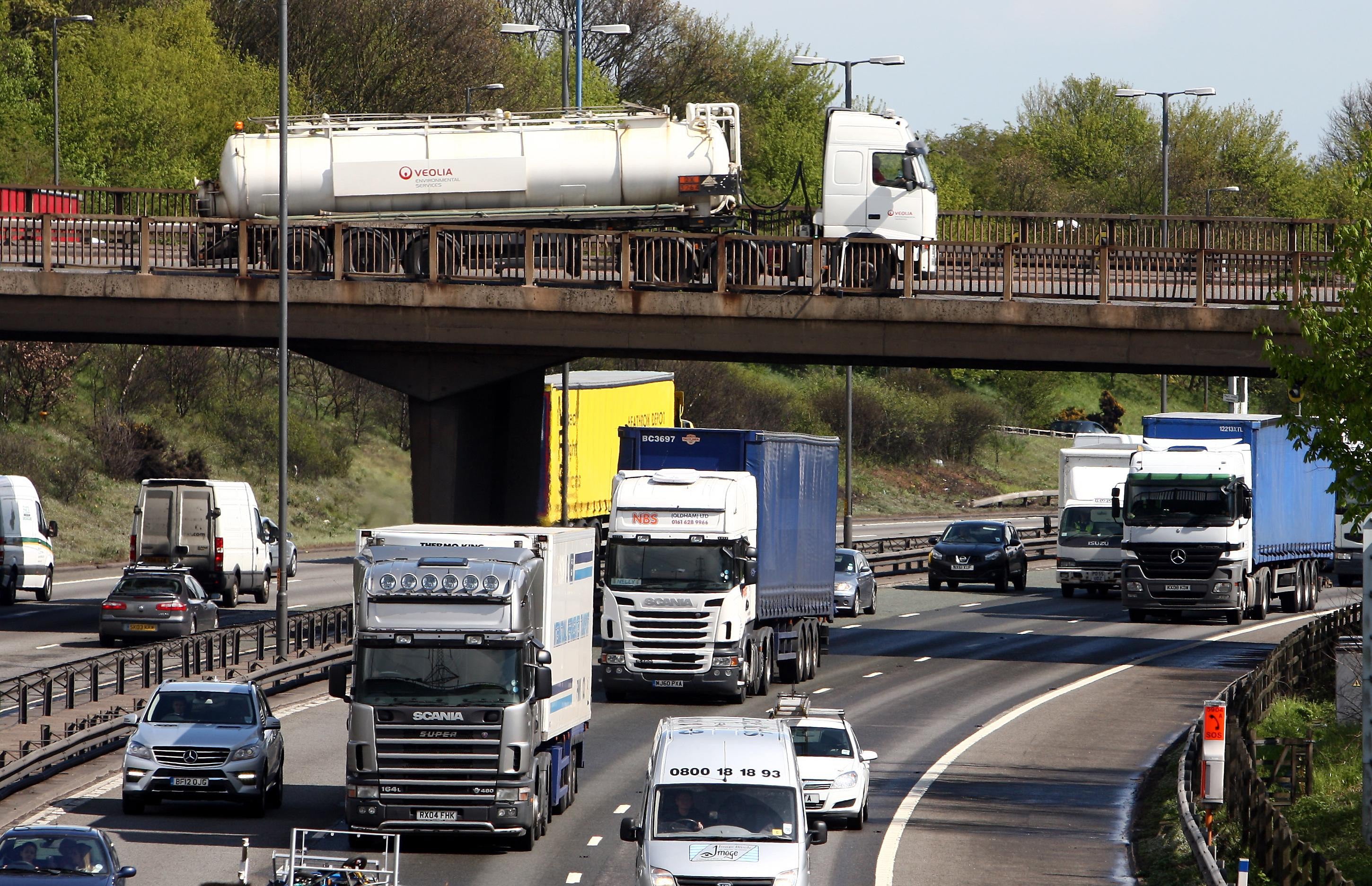Government changes HGV test rules in bid to tackle shortages
Transport Secretary Grant Shapps said the shortage of drivers ‘is a global problem’.

Your support helps us to tell the story
From reproductive rights to climate change to Big Tech, The Independent is on the ground when the story is developing. Whether it's investigating the financials of Elon Musk's pro-Trump PAC or producing our latest documentary, 'The A Word', which shines a light on the American women fighting for reproductive rights, we know how important it is to parse out the facts from the messaging.
At such a critical moment in US history, we need reporters on the ground. Your donation allows us to keep sending journalists to speak to both sides of the story.
The Independent is trusted by Americans across the entire political spectrum. And unlike many other quality news outlets, we choose not to lock Americans out of our reporting and analysis with paywalls. We believe quality journalism should be available to everyone, paid for by those who can afford it.
Your support makes all the difference.HGV drivers will only have to take one test rather than two, the Government has announced, in a move designed to help quell shortages.
The Department for Transport (DfT) said up to 50,000 more HGV driving tests would be made available, with drivers now only having to take one test to drive both a rigid and articulated lorry.
Previously, this needed two separate tests spaced three weeks apart.
It comes amid huge issues in supply chains in recent months, leaving some shop shelves empty, or forcing restaurants to remove items from their menus.
But the DfT said tests will also be made shorter by removing certain elements which can then be tested separately.
And car drivers will also no longer have to take another test to tow a trailer or caravan, freeing up more examiner time to carry out HGV tests.
However, Labour raised safety concerns and said the move was a “recipe for disaster”.
It comes after the boss of the Food and Drink Federation said that the days when UK consumers could expect to pick up nearly whatever product they want whenever they want from supermarket shelves are over.
Ian Wright the body’s chief executive, said that a shortage of lorry drivers is in part due to them moving to online retailers and starting to deliver for Amazon and Tesco.
These jobs often have better hours and pay, he added.
The farm-to-fork supply chain is missing around half a million of the four million people that usually work in the sector.
It’s going to get worse, and it’s not going to get better after getting worse any time soon
Part of this will have come from EU nationals leaving the UK amid the pandemic and Brexit, he said.
“It’s going to get worse, and it’s not going to get better after getting worse any time soon,” Mr Wright told listeners at an event organised by the Institute for Government.
He added: “The result of the labour shortages is that the just-in-time system that has sustained supermarkets, convenience stores and restaurants – so the food has arrived on shelf or in the kitchen, just when you need it – is no longer working.”
Transport Secretary Grant Shapps said: “From Inverness to St Ives, HGV drivers are helping to keep the country running, and have been throughout the pandemic.
“The shortage of drivers is a global problem, but we’ve been taking action here in the UK to help industry leaders attract drivers and build a more resilient sector.
“We’ve already delivered 50% more tests than were available before the pandemic, but today’s additional measures will deliver up to 50,000 more a year, helping more and more people to kickstart their career as a well-paid HGV driver.”
But Jim McMahon Labour’s shadow transport secretary, said: “Cutting corners on tests, coupled with increasing working hours for HGV drivers, is a recipe for disaster.
“Compromising safety is not going to avert this crisis, nor attract more people to the industry to help plug the 90,000 driver shortfall.
“Labour has set out a clear five-point plan to tackle growing supply chain issues. The Government must act now to protect our economic recovery, our businesses and vital services.”
Downing Street earlier rejected the idea that shortages will be “permanent” and insisted the UK food supply chain is “highly resilient”.
“We don’t recognise those claims,” a No 10 spokesman said.
“We have got highly resilient food supply chains which have coped extremely well in the face of challenges. We believe that will remain the case.
“We know there are some issues that are facing the sector. We will continue to speak and liaise with those involved in those industries to try to ensure we can help them as much as possible.”